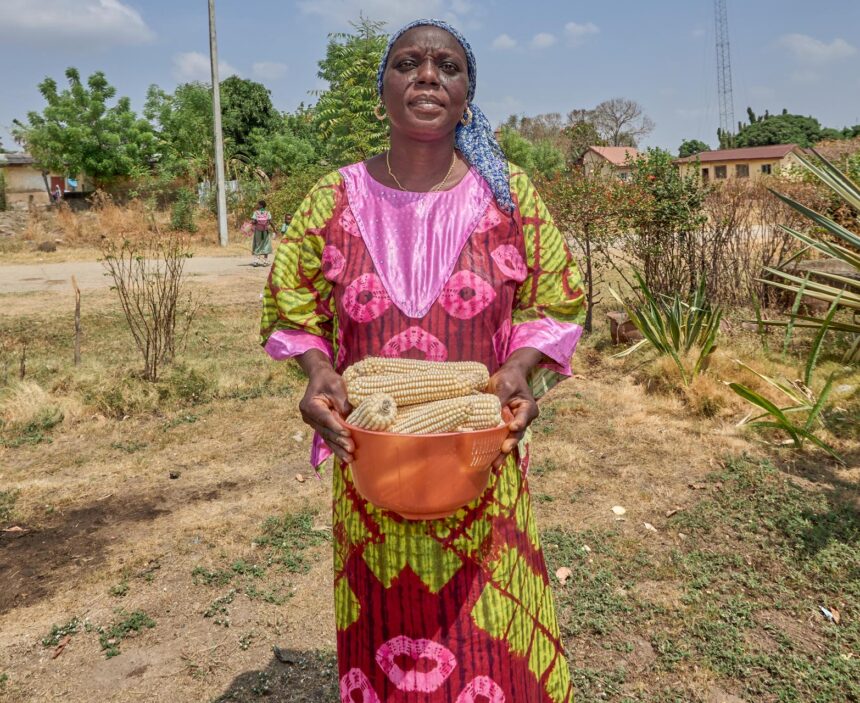By Onche Odeh
The serial attacks by groups opposed to the introduction of Genetically Modified Organisms (GMOs) in Nigeria has been described as lacking in sincerity and believability.
This assertion by renowned Nigerian plant breeder, Professor Rebecca Ndana, is in response to the flurry of negative narratives about Genetic Modification by anti-GMOs groups sequel to the launch of TELA Maize, improved versions of the common maize varieties that have been genetically engineered to resist the Fall Army Worm and tolerate some measure of drought.
Prof Ndana, former head of the Department of Biological Sciences at the University of Abuja, Nigeria who holds the traditional title of Dzaromi Mata Patigi (Leader of the women of Patigi), said Nigeria and Africa have nothing to fear about GMOs, saying the technology has become the most viable solution to the myriad of food production problems currently faced by Nigeria and many countries of the world.
Speaking during an interview in Abuja, Prof Ndana said, “All of the misconceptions about genetic modification as expressed so far by those opposed to the technology are not honest and cannot pass any form of scientifically proven integrity test.
“Until this day, there is no evidence to show that the consumption of GM foods is associated with any form of health condition as claimed by the anti-GMO groups.”
On a practical experience sharing note that asserts the safety of GMOs, Prof Ndana said, “I am not just a theoretical Botanist. I farm TELA Maize and the PBR Cowpea in my Garden, which I eat and feed my family with. As a scientists and community leader, I cannot be promoting anything that will harm my people. Apart from being a scientist, I am also a mother, and it will be crazy for me to expose my family to something that could wipe out my entire generation.”
Prof Ndana currently farms the PBR Cowpea, TELA Maize, genetically modified versions of beans and maize respectively in her multi-purpose garden, from where she she feeds.
As at the time this interview was conducted in her home and garden, Prof Ndana had made series of harvests from the PBR Cowpea she farmed last year and the first harvests from planting TELA Maize, which she said she has used to make various kinds of meals for home consumption and as the main ingredient for her chicken feeds.
“We have made every kind of food from the PBR Cowpea, including bean cake, soups, and moi moi to the consumption delight of my family. I am not a foolish woman to feed my family and myself with poison, as the anti-GMOs have erroneously made the technology to look.
“My family and I have been consuming the TELA Maize since the ones we planted became due for harvest. We have stored a significant quantity of it after we consumed a substantial quantity as fresh corncobs. We are here. No one has fallen sick from eating it. There is nothing wrong with GMOs,” she said.
According to her, Genetic Modification is a natural process, saying, “All the scientist has done with the GMOs is to enhance and adapt the genes to respond to specific needs for a desired outcome.”
She said it is time to get more people, especially in Nigeria to know more about Biotechnology, the basis of Genetic Modification so that they can become the voices of the technology.
“Nigeria has nothing to fear about GMOs. We have the National Biosafety Management Agency (NBMA) which actively regulates all forms of Genetic modification activities in the country to ensure safety of plants, human and the environment,” Prof Ndana said, stating also that GM remains the solution to the challenges to farming caused by insecurity, climate change, soil degradation and other factors.
“Nigeria is faced with incessant banditry that has reduced farmers’ access to arable land amid the rapidly growing population that has put more pressure on the available arable lands. The country has also not been spared the effect of climate change and other factors like excessive and improper use of chemicals that have significantly degraded the fertility of the soils.
“In the face of these realities, the country is in dire need of innovations that could enhance food production, in which case modern agricultural biotechnology cannot be jettisoned,” Prof Ndana said, adding that, “the loss of arable land and soil fertility being experienced across the country could only be made up for with innovations that ensures more production with less use of land, and the development of crop varieties that are protected against diseases, pests, tolerant to drought and climate change consequences.
She also pointed out that Nigeria must prioritize investment in the acquisition of additional data on genetic engineering from countries that have successfully used the technology to become food secure.





